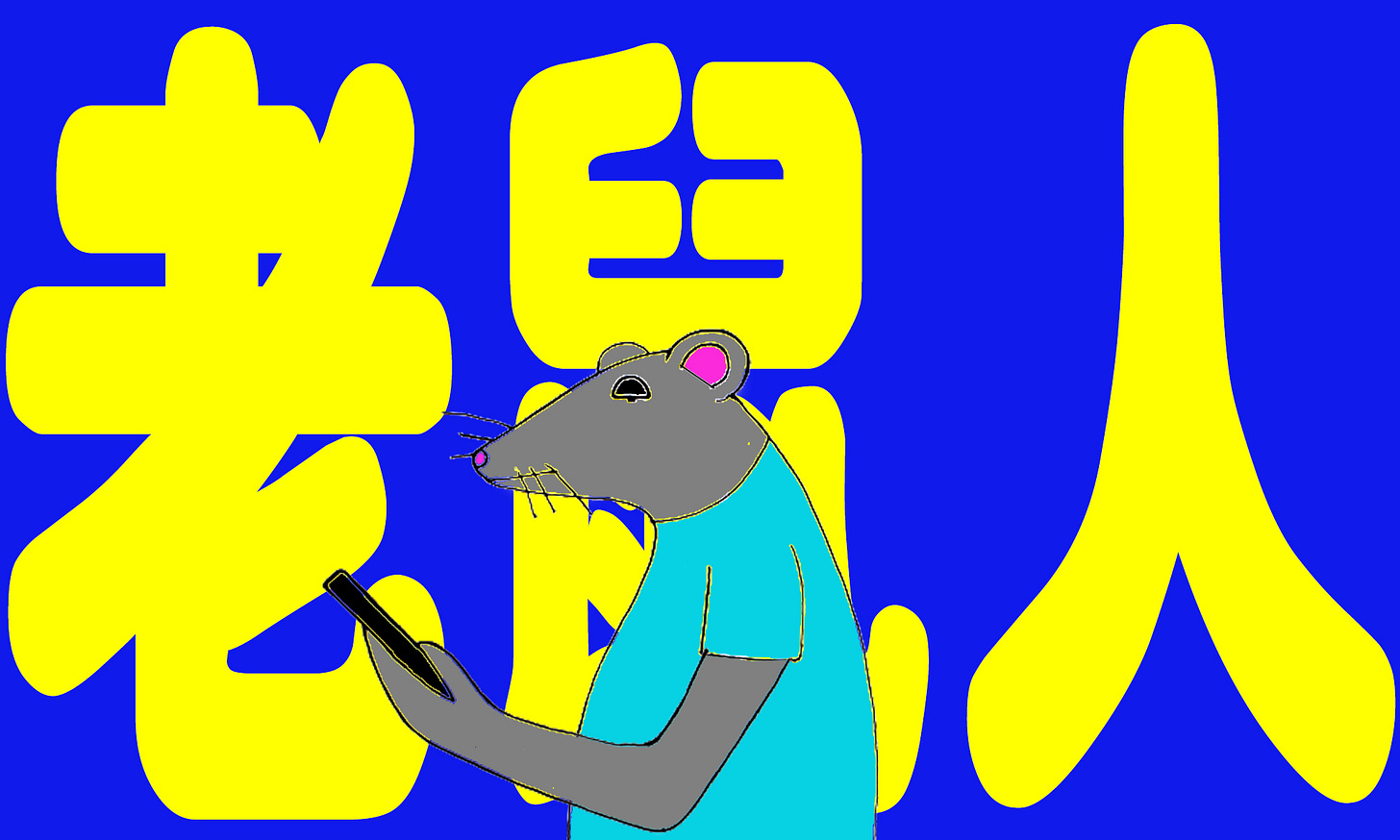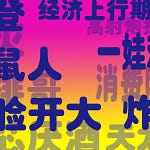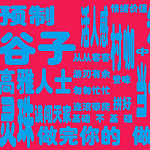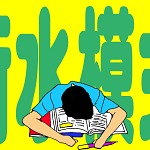Welcome to RealTime Mandarin, a free weekly newsletter that helps you improve your Mandarin in 10 minutes a week.
Subscribe today to get your fluency back, stay informed about China, and communicate with confidence in Chinese — all through immersion in real news.
If you’re new here, I write this newsletter every week to uncover and explain new and nerdy Chinese words and language trends.
In that process, I occasionally find a phrase which bubbles up from the Chinese internet capturing a mood so powerfully that it goes viral, enters mainstream discussion, and ends up representing an entire social shift or movement.
That’s what happened with the phrase “lie flat” (躺平), which we first explained back in 2021 when it was gaining traction.
This week, we’re looking at one of these phrases.
It’s an evolution of the “lie flat” meme, and once again, it’s resonating widely among China’s youth. It joins a growing list of phrases coined or reimagined since 2021 to describe how some young people are coping with social and economic pressures in China.
We’ve previously covered many of these phrases: from “internal anxieties” (精神内耗) and “quiet quitting” (糊弄学), to how young people describe themselves as low-value “workhorses” (牛马) stuck in high-pressure, low-paid jobs, or as “rotten-end kids” (烂尾娃), unable to land their dream job, yet unwilling to “take off the long gown of Kong Yiji” (脱下孔乙己的长衫) after years of costly education.
Together, they are "letting things rot" (摆烂).
Now a new phrase has appeared to add to the lie flat era lexicon:
A new phenomenon has emerged online recently — “rat people”.
It describes a mental state with the following behavioural patterns: no motivation and low productivity; feeling tired during the day and staying up late at night; anxious about the future but not taking action; wanting to change, but just unable to move.
最近在网上,出现了一种新现象——老鼠人。老鼠人是一种社会心理与行为状态:做事提不起劲,效率低下;白天昏沉,晚上熬夜;对未来焦虑,却缺乏行动;想改变,但就是动不了。
Related
When I dug into its background, I was surprised to find the origin of this new term about miserable "rat people" is connected with the UK, where I live. Or maybe it’s not that surprising — after all, we’re all miserable here!
Here’s the background.
In early 2025, social media feeds were filled with video shorts of “low-energy rat people” (低能量老鼠人) sharing their daily life experiences. They were mostly Chinese students studying in the UK enduring long, dark British winters in isolation:
“On those long, rainy days, UK-based Chinese students stayed at home, living a rat-like life”, jokingly called the “Rat People”.
“在阴雨连绵的日子里,英区留子宅家过着鼠鼠的蛰伏生活”,这一状态被戏称为“老鼠人”。[2]
Vlogs documenting this withdrawn lifestyle under the tag "A day in the life of a low-energy rat person" (低能量老鼠人的一天) spread on Chinese social media and quickly caught on inside China.
The rat people meme is an evolution of another phrase which became popular in 2023: “rat literature” (鼠鼠文学).
“Rat literature” (鼠鼠文学), which we translate as "rat-ism", started as a self-deprecating humorous take on the lives of lower-income people who were working long hours in low-paid jobs into the night. Building on this, now the newly coined “low-energy rat person” has become a lifestyle statement and a social media trend where people share their "low energy" lifestyles online.
The phrase has taken off, racking up nearly 2 billion views across Chinese social media platforms over the last few months.
The authentic, relatable, and vulnerable content has struck a chord with many in China. Influencers like Happy Rat Chronicles (幸福鼠录), Jiawen and Four Persimmons (嘉文四柿), and Diary of a Rat Person (鼠人日记) — a nod to Lu Xun’s Diary of a Madman (狂人日记) — have built followings of tens of thousands of “rat people” fans, creating a space for quiet resistance, shared struggles, and community building.
The popularity of this low energy lifestyle has led to an entertaining take on how the roles of young and old people have reversed:
"The streets are full of energetic elderly people, listless young people, and middle-aged people who want to die but don’t have the courage to."
“满大街都是朝气蓬勃的老年人和死气沉沉的年轻人以及想死又不敢死的中年人。” [4]
This has led to the suggestion that older energetic types should get back to work, middle-aged depressives should go back to school, and lethargic rat people youngsters should retire to old people’s homes!
So, that’s what we’re discussing this week!
Favourite Five
1. 比惨 bǐ cǎn
misery contest, who-has-it-worse competition
网友在“比惨”中获得安慰,又在“同款”弹幕里确认自己的群体安全感 - Netizens find comfort in the competition of who-has-it-worse, while confirming their sense of belonging through shared experiences in the bullet comments. [2]
2. 屌丝 diǎo sī
loser, underdog
一开始,自嘲“鼠鼠”的大多是一些地位卑微、生活贫困、容貌不佳……这些集缺点和倒霉于一身的屌丝 - At first, those that labelled themselves “rat people” were the underdogs who had a humble background, struggled financially and were not considered good-looking. [4]
More: The literal meaning is "male pubic hair," but it has been widely adopted as a slang term to refer to individuals who are perceived as "losers" or "failures" in life. First popular around 10 yers ago, it’s a self-deprecating term for those who perceive themselves as socially unsuccessful, lacking wealth, status, or romantic prospects. It’s not such a welcome phrase these days, but came up quite a bit in these discussions. As an added bonus: 屌丝 also means incel as in Adolescence.
3. 颓废 tuí fèi
worn-out, lethargic
该词寓意为整日宅在家,不社交不运动,除了吃饭上厕所,其它时间都躺在床上的当代颓废年轻人 - It refers to today’s fatigued youth who stay at home all day without any social interaction or physical activity. They spend all their time in bed except when having a meal or going to the bathroom. [4]
4. 老鼠人 lǎo shǔ rén
rat person
今年以来,“低能量老鼠人的一天”系列短视频走红社交媒体,很多年轻人热衷于自我诊断为“低能量老鼠人” - This year, the short video series “A Day in the Life of a Low-Energy Rat Person” went viral on social media, with many young people eager to self-diagnose as such. [2]
Related:
老鼠干 lǎoshǔ gān - dried rat meat (what happens when a rat person ventures out into the sun)
鼠鼠文学 shǔ shǔ wén xué - rat literature, rat-ism
低能量老鼠人 dī néngliàng lǎoshǔ rén - low-energy rat person
5. 殚精竭虑 dān jīng jié lǜ
exhaust one’s mind and energy
我是一个老鼠人,殚精竭虑地活着 - I’m a rat person who has to spend all the energy just to stay alive. [4]
🎧RTM Podcast Preview
This week on the RTM Advanced podcast, we go deep into the lives of “low energy rat people” and some of the words used to describe them, like “dried rat meat” (老鼠干), and the many easily-confused ways to describe “burnout” in Chinese, like:
“exhausted, worn out” (筋疲力竭 jīn pí lì jié)
“physically and mentally exhausted” (身心疲惫 shēn xīn pí bèi)
“exhaust one’s mind and energy” (殚精竭虑 dān jīng jié lǜ)
Tired and confused?
Don’t be: tune in at 6 minutes where we break down what they mean, how native speakers use them, and how you can use them in real conversations.
💡 Ready to get inspired to bridge the gap to real-world fluency? 💡
As well as our Advanced podcast, every RTM post is packed with content and tools to inspire and help you get fluent.
This week we uncover loads of cool “must-know” on-trend phrases you need to discuss “rat people”.
So, ready to finally get started and wave good bye to that nagging rusty feeling?
Let’s jump in👇

















